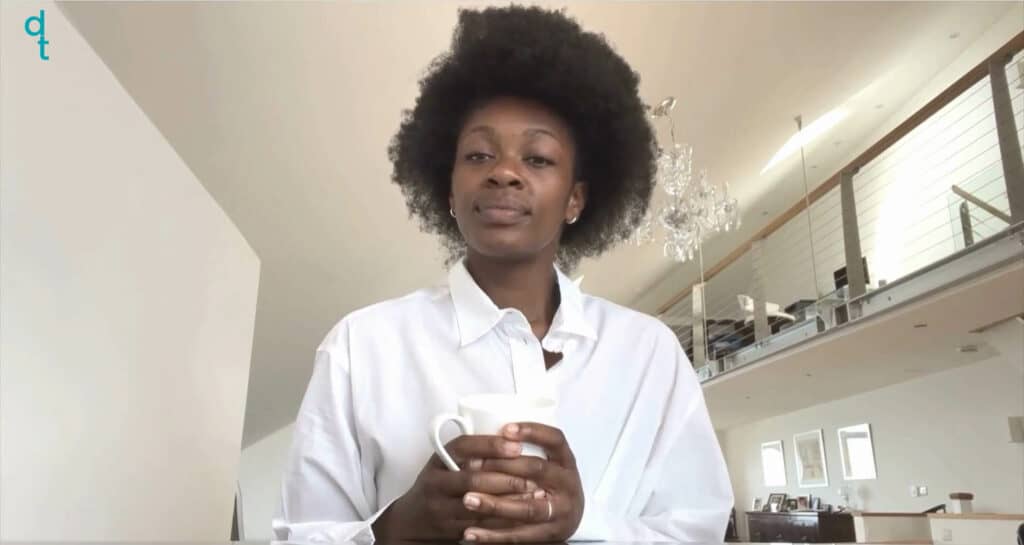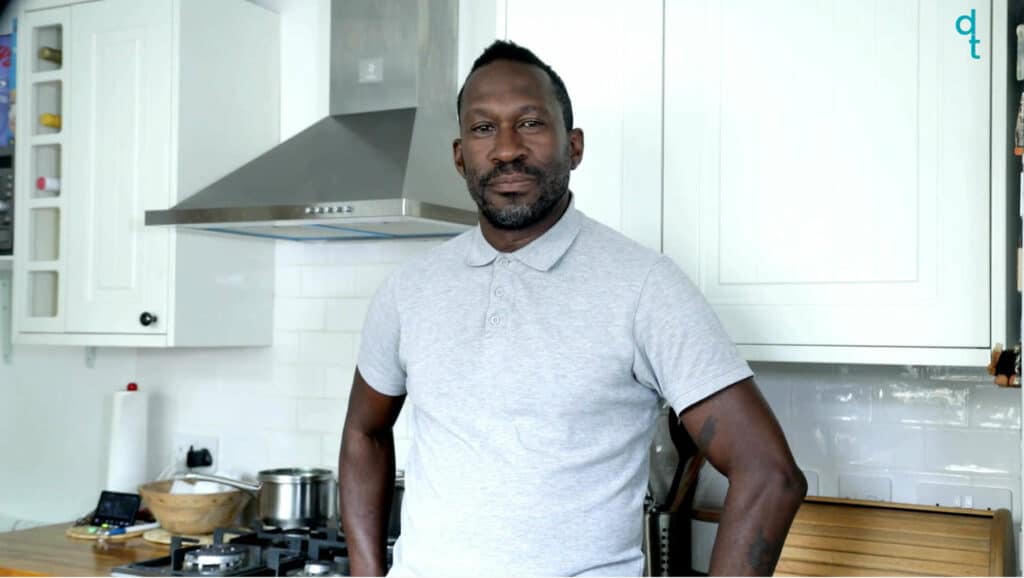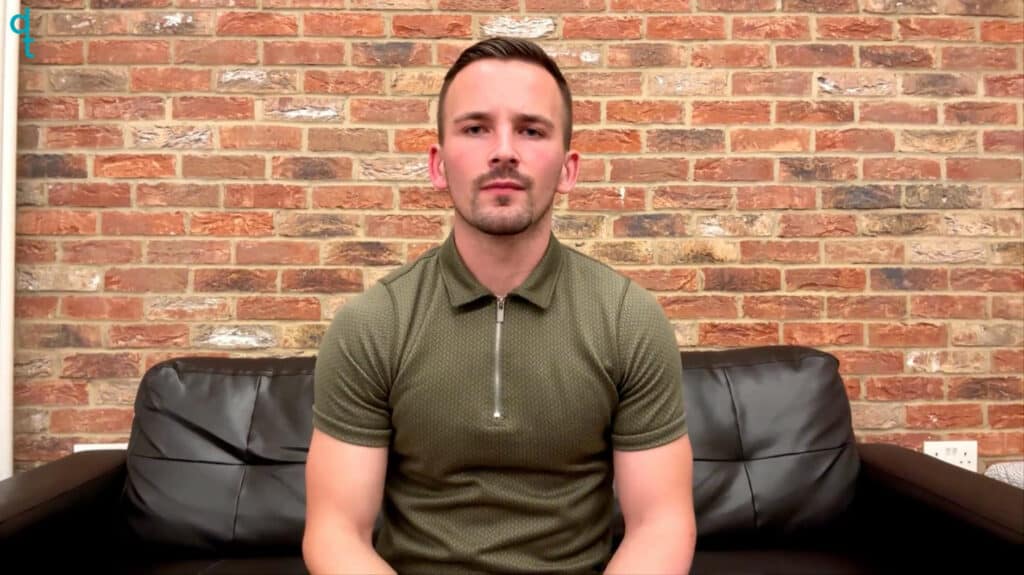Video description: A Black deaf woman sits down at a glass table. She holds her coffee cup on the table whilst talking. Her background is an open plan room with bright lighting. She wears a baggy white blouse. She speaks in English. There is a black deaf woman, who wears a red long-sleeved shirt with black pants, in the right corner, who is translating the spoken English to British Sign Language.

Francesca’s story
My name is Francesca. I am deaf, in my early 30s and I am married to a white hearing man. We live in a wealthy part of Cardiff.
I went to mainstream school so I didn’t know any BSL. Then when I started university, I met another deaf student who uses BSL. Now I am bilingual and confident in both spoken and written English as well as BSL.
Over the years, I have climbed the career ladder, gained high qualifications and have lots of experience.
I have a highly respected job in the civil service and use interpreters funded by Access to Work. I prefer to speak for myself in meetings and events, and the interpreters translate other people speaking into BSL.
I applied for a promotion recently, it was a role with more responsibilities, but I didn’t get the job. They told me they felt that I wasn’t ready to take on the more complex tasks involved with the role. There is also a lot of overseas travel to represent the civil service and they don’t think I am ready for that either.
I think my employer thinks that I have reached my limit ‘as a deaf person’. It is very hard to prove this kind of subtle discrimination.
I am getting advice from the Equality and Human Rights Commission about what to do next. I am finding this whole situation so stressful that I have had to find professional counselling support.
I really want to progress in my career and, perhaps, one day have a family but I feel stuck.

